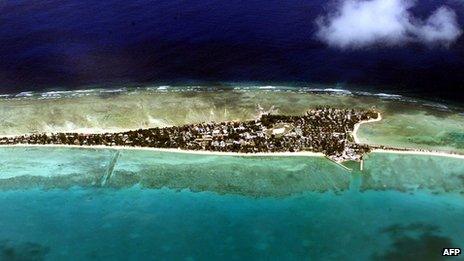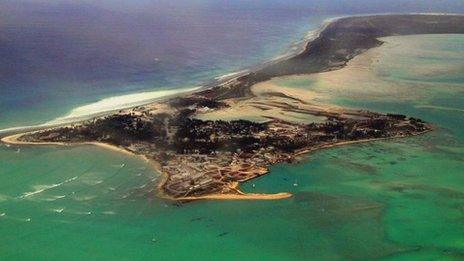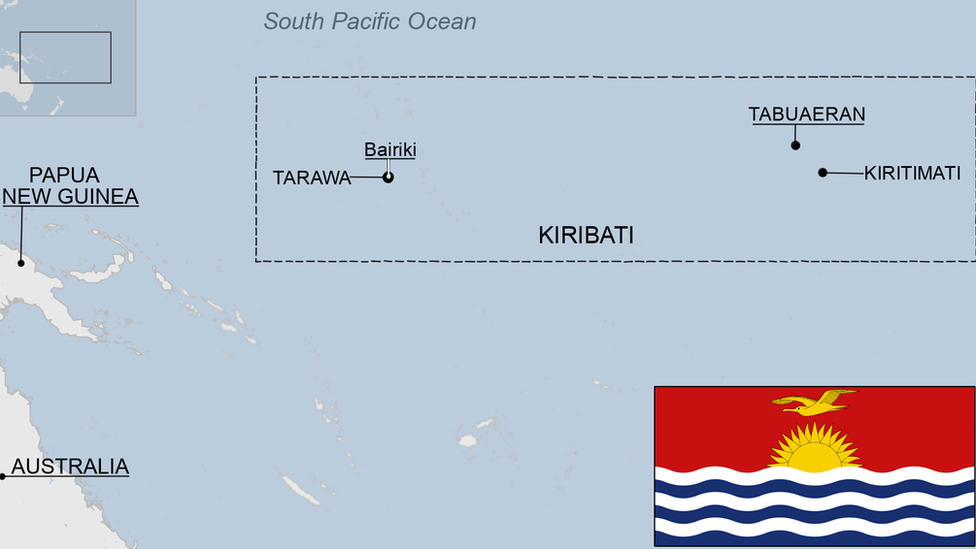New Zealand denies climate change asylum bid
- Published

Some of Kiribati's atolls are already disappearing under the sea
The New Zealand High Court has rejected a bid by a man from the Pacific island nation of Kiribati to stay in the country as a climate-change refugee.
Ioane Teitiota - whose work visa had expired - had said rising sea-levels meant there was no land in Kiribati he and his family could return to safely.
The low-lying island nation is vulnerable to climate change.
But the judge said environmental problems did not fit internationally recognised criteria for refugee status.
"By returning to Kiribati, he would not suffer a sustained and systemic violation of his basic human rights such as the right to life... or the right to adequate food, clothing and housing," High Court Justice John Priestley wrote in his judgment.
Mr Teitiota, 37, has lived in New Zealand since 2007 but overstayed his work permit. Earlier this year the immigration department rejected his bid for asylum saying he was not facing persecution at home.
But Mr Teitiota's lawyer had challenged that decision, arguing that he and his family - including his three New Zealand-born children - would suffer harm if forced to return to Kiribati because of the combined pressures of over-population and rising sea-levels.
They told the court that Mr Teitiota was being "persecuted passively by the circumstances in which he's living, which the Kiribati government has no ability to ameliorate".
Kiribati, with a population of more than 100,000, has an average height of 2m (6,5ft) and is one of the countries most vulnerable to rising sea levels.
- Published8 March 2012

- Published26 January 2024
